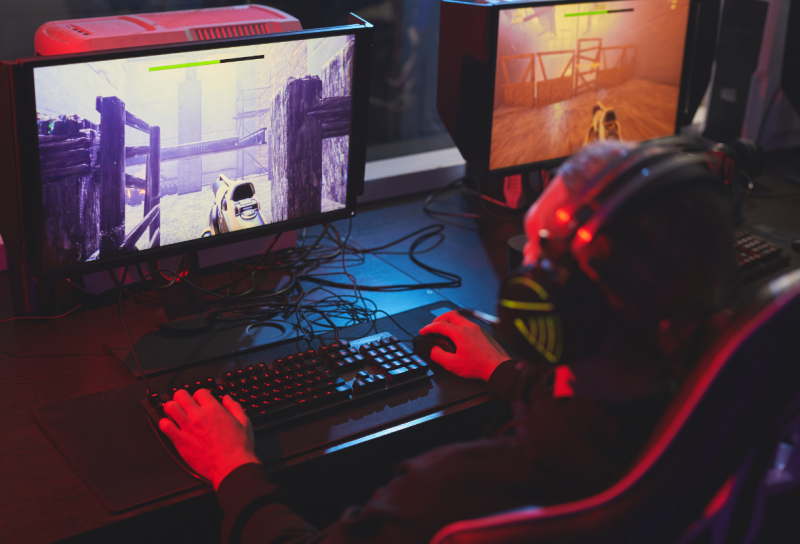Buying the best gaming computer involves considering several factors to ensure optimal performance and gaming experience. Here’s a guide to help you make an informed decision:
1. Define Your Gaming Needs:
- Gaming Preferences: Determine the types of games you want to play and their system requirements. High-end games may require more powerful hardware.
2. Consider Specifications:
- Processor (CPU): Look for modern processors like Intel Core i5 or i7, or AMD Ryzen CPUs, with higher clock speeds and multiple cores for better gaming performance.
- Graphics Card (GPU): A dedicated GPU is crucial. NVIDIA GeForce RTX or AMD Radeon RX series cards offer excellent gaming performance. Consider VRAM size for higher resolutions.
- Memory (RAM): Opt for at least 8GB to 16GB of RAM for smooth gaming. More memory may be beneficial for resource-intensive games or multitasking.
- Storage: SSDs provide faster load times compared to HDDs. Consider a combination of SSD for faster boot times and an HDD for larger storage capacity.
- Cooling System: Gaming PCs require efficient cooling systems to prevent overheating during extended gaming sessions.
3. Budget Consideration:
- Set a Budget: Determine a budget range based on your gaming requirements and prioritize essential components within that range.
4. Research and Reviews:
- Read Reviews: Research gaming computer models, read reviews, and compare specifications to find one that meets your gaming needs and budget.
5. Custom Build vs. Prebuilt:
- Custom Build: Building your PC allows customization and often offers better value for performance. However, it requires technical knowledge.
- Prebuilt Systems: Prebuilt gaming PCs are convenient and save time. They come ready-to-use but might have limited customization options.
6. Brand Reputation and Warranty:
- Reputable Brands: Consider brands known for quality components, customer service, and reliable warranties.
- Warranty: Check warranty terms and after-sales support offered by the manufacturer or retailer.
7. Connectivity and Ports:
- USB Ports: Ensure the PC has enough USB ports for peripherals like gaming controllers, keyboards, and mice.
- Audio and Networking: Check for audio ports and networking capabilities to enhance your gaming experience.
8. Future Upgradability:
- Expansion Slots: Ensure the PC has room for future upgrades like additional RAM, extra storage, or a better GPU.
9. Aesthetics and Design:
- Case and Lighting: Consider the case design and RGB lighting if aesthetics are important to you.
10. Consider Other Peripherals:
- Monitor, Keyboard, and Mouse: Invest in quality peripherals for a complete gaming setup.
By considering these factors, you can narrow down options and choose a gaming computer that best suits your gaming needs, performance requirements, and budget.
